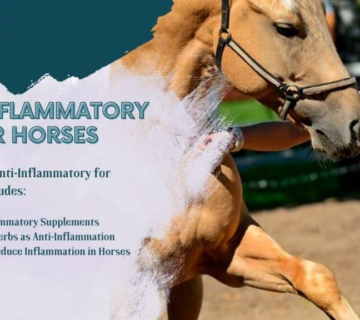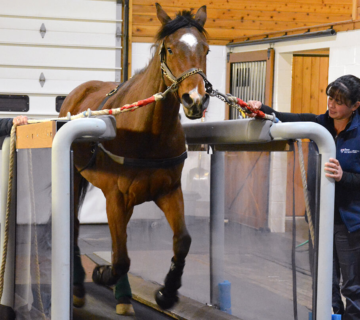Medicating racehorses is an essential responsibility that requires precision, knowledge, and a commitment to the horse’s well-being. Even the smallest mistake can have significant consequences, ranging from compromised performance to severe health complications. In this comprehensive guide, we’ll explore common errors made when medicating racehorses and provide actionable advice to help horse owners and trainers avoid these pitfalls.
Understanding the Importance of Proper Medication
Racehorses are high-performance athletes, and their health must be maintained at an optimal level. Medication plays a critical role in:
- Managing pain and inflammation
- Treating infections and injuries
- Supporting joint and overall health
- Enhancing recovery post-race or workout
However, misuse or misunderstanding of medications can lead to adverse effects, disqualifications in competitions, and unnecessary expenses. Common Mistakes in Medicating Racehorses
1. Misdiagnosis of Conditions
One of the most common mistakes is medicating a horse based on assumptions rather than a proper diagnosis. For example, administering anti-inflammatory drugs without identifying the underlying cause of pain can mask symptoms rather than resolve the issue.
How to Avoid This Mistake:
- Always consult a veterinarian before starting any medication regimen.
- Observe your horse closely for specific symptoms and report them accurately.
- Utilize diagnostic tools such as X-rays, blood tests, and ultrasounds to pinpoint the problem.
2. Overdosing or Underdosing
Incorrect dosages can lead to toxicity or render the medication ineffective. Overdosing can cause severe health complications, while underdosing might fail to treat the condition entirely.
How to Avoid This Mistake:
- Follow your veterinarian’s dosage recommendations precisely.
- Weigh your horse accurately to calculate the correct dose, as most dosages are weight-dependent.
- Use a calibrated syringe or measuring device for liquid medications.
For example, when administering joint supplements like those found in our Joint Supplements for Horses, ensure the quantity aligns with the horse’s specific needs.
3. Ignoring Withdrawal Periods
Medications often have withdrawal periods that must be adhered to before a race to avoid disqualification. Failure to observe these timelines can lead to serious consequences, including bans or fines.
How to Avoid This Mistake:
- Familiarize yourself with the withdrawal times for all medications you use.
- Maintain a medication logbook to track administration dates and withdrawal periods.
- Utilize resources or apps that provide up-to-date information on competition regulations.
4. Mixing Incompatible Medications
Combining certain medications can lead to adverse reactions, reduced efficacy, or even toxicity. For instance, nonsteroidal anti-inflammatory drugs (NSAIDs) should not be mixed without veterinary advice.

How to Avoid This Mistake:
- Discuss all current medications with your veterinarian before adding new ones.
- Understand potential interactions and side effects of each drug.
- Store medications separately and label them clearly to avoid accidental misuse.
5. Improper Storage of Medications
Medications lose their effectiveness if not stored correctly. Some drugs require refrigeration, while others need to be kept away from light and moisture.
How to Avoid This Mistake:
- Read and follow storage instructions on the medication label.
- Invest in a dedicated storage space, such as a medicine cabinet or refrigerator.
- Regularly check expiration dates and discard expired products.
Explore our range of equine health products to find high-quality supplements and medications with proper storage guidelines.
Common Mistakes in Medicating Racehorses
6. Failing to Administer Medications Correctly
Improper administration techniques can result in inadequate absorption, stress to the horse, or even injuries.
How to Avoid This Mistake:
- Familiarize yourself with the correct method of administration (oral, injectable, topical, etc.).
- Use appropriate equipment, such as dosing syringes or applicators.
- Practice calm handling techniques to reduce stress during administration.
7. Skipping Preventive Supplements
Preventive care is often overlooked, leading to increased reliance on medications to treat conditions that could have been prevented. For instance, joint degeneration is a common issue in racehorses but can often be mitigated with the right supplements.
How to Avoid This Mistake:
- Incorporate high-quality joint supplements into your horse’s routine. Check out our selection of joint health products for racehorses.
- Work with your veterinarian to design a preventive care program tailored to your horse’s needs.
8. Relying Solely on Medications
While medications are crucial, they should not replace proper training, nutrition, and overall care. An over-reliance on drugs can lead to long-term health issues and reduced performance.
How to Avoid This Mistake:
- Focus on a balanced diet, including premium-grade supplements like those in our nutrition section.
- Ensure adequate rest and recovery periods for your horse.
- Incorporate physical therapy and regular exercise into their routine.
9. Using Medications Without Understanding Side Effects
Every medication has potential side effects, which can range from mild to severe. Ignoring these risks can exacerbate existing conditions or create new problems.

How to Avoid This Mistake:
- Request detailed information about side effects from your veterinarian.
- Monitor your horse closely after administering new medications.
- Report any unusual symptoms immediately for prompt intervention.
10. Not Keeping Accurate Records
Lack of documentation can result in forgotten doses, overdosing, or unintentional rule violations in competitions.
How to Avoid This Mistake:
- Maintain a detailed log of all medications and supplements administered, including dates, dosages, and withdrawal periods.
- Use digital tools or apps for easier tracking and accessibility.
- Regularly review records to ensure compliance with regulations.
Common Mistakes in Medicating Racehorses Final Thoughts
Medicating racehorses effectively requires a proactive approach, attention to detail, and a strong partnership with your veterinarian. By avoiding the common mistakes outlined above, you can ensure your horse remains healthy, performs at their best, and stays within regulatory guidelines.
Explore our wide range of racehorse supplements and health products to support your equine athlete at every stage of their career. From joint supplements to nutritional boosters, we provide everything you need to maintain your horse’s peak condition.



No comment